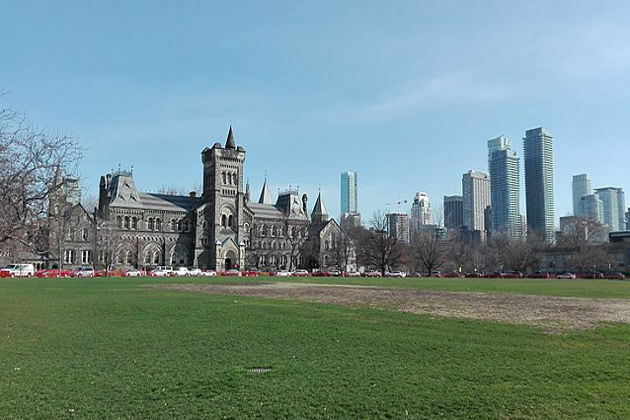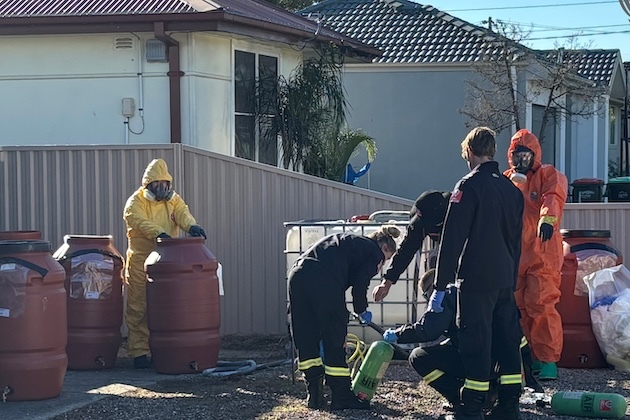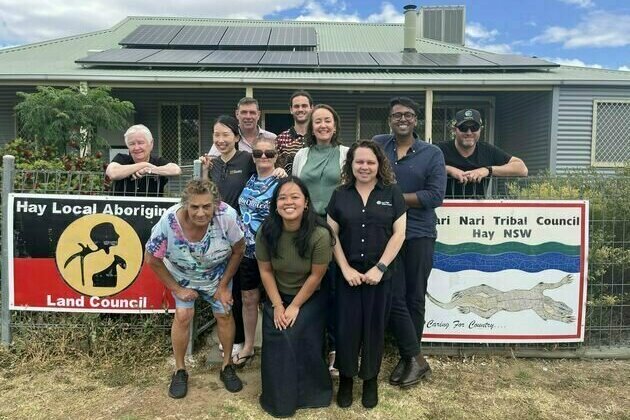Coal mines can be closed without destroying livelihoods - here's how
The Conversation
09 Oct 2019, 23:57 GMT+10

Countries across the globe are trying to wind down coal production. While this will help in the battle against climate change, those communities that have specialised in coal mining may see their local job market decline or be eliminated entirely. Most of these places have mined coal for many generations. Given long-standing traditions, such communities will inevitably resist decarbonisation unless they are given appropriate reassurances regarding their economic and social survival.
We recently researched what did - and didn't - work in coal regions of Canada, Australia and Germany. Our aim was to identify which policies have been most successful in halting the production of coal without placing the economic burden on coal workers and communities. Our results are now published in the journal Energy Policy.
Workers in extractive industries like mining or oil are often presented as the public face of opposition to environmental protection. However, research has shown that workers in "dirty" industries do tend to support environmentally friendly policies once their immediate interests are not negatively affected.
Furthermore, there is clear evidence that environmental protection and transitioning to the low-carbon economy has the potential to create employment just as much as it can cause unemployment.
The European Trade Union Institute has developed various indicators of a "just transition" away from coal - dialogue, retraining, and so on. In our paper, we used these indicators to identify what worked in our three case study areas.
Talk to each other
We found that active dialogue with communities is key. In North Rhine-Westphalia, Germany, policy is jointly formulated by employees and employers, giving workers a voice which is largely equal to that of industrialists. The proportion of employees on supervisory boards is determined by the number of employees, which means there is one-third employee representation if there are more than 500 employees and parity on the supervisory board if there are more than 2,000 employees. This has meant coal mining has been gradually reduced and now nearly eliminated without major social or political upheaval.
In contrast, Hazelwood coal power station and adjoining mine in Victoria, Australia were closed with minimal consultation with unions or government, and after just five months notice.
Where dialogue does occur, it must be genuine and followed by action. In coal villages in Alberta, Canada, such as Forestburg or Wabamun, the industry did attempt to talk to workers and local officials but the structure of the talks was poorly defined, resulting in workers not trusting the decarbonisation processes.
Jobs after coal
We identified re-employment in "clean" industries as a way to maintain livelihoods. The German approach to re-employment has seen North-Rhine Westphalia reinvent itself as a leader in new energy technologies. Central to this has been a bottom-up approach involving co-operation between workers, communities, employers and government.
In Victoria, the dominance of the coal industry has hindered the transition towards a lower-carbon economy. However, the establishment of the Earthworker Cooperative has provided a platform for various affected groups to establish sustainable enterprises such as Australia's first worker-owned factory, making renewable energy appliances and components. This demonstrates how local communities can create employment and maintain profits within their area without relying on coal.
In Alberta, a number of production facilities are simply shifting from coal to gas. While this shift creates jobs outside the coal sector, it does little to secure employment overall, since natural gas extraction and production requires fewer workers than coal. For example, energy company TransAlta is converting its coal-fired Sundance power plant in Wabamun to natural gas, which means the overall workforce will be cut in half when the layoffs are complete.
Investing in people's futures
Re-training allows workers to develop the necessary skills to work outside of the coal sector. In North Rhine-Westphalia, training programmes have targeted a number of different sectors including engineering, trades, business and technology. The industrial heartland of the Ruhr area - once the centre of Germany's coal industry - has six new universities, 15 colleges and 60 research facilities since 1961. This Strukturwandel, or structural change, has developed a highly skilled workforce and demonstrates the potential for economic growth and diversification beyond coal.
Education and training has been made more accessible through subsidised retraining - in Alberta, through the Coal and Electricity Transition Tuition Voucher, and in Victoria through the Training Guarantee. This ensures that retraining does not place an additional burden on those facing redundancy.
Make former coal towns great again
Investing in infrastructure is a further means by which to secure sustainable transitions for workers and their families. In North Rhine-Westphalia and Victoria, government funding has primarily focused on roads and rail alongside investment in community infrastructure such as sports and recreational facilities. This ensures that former mining areas do not remain synonymous with coal production, pollution and socio-economic problems, and makes them a more attractive place for other industries to invest.
Moving away from fossil fuels such as coal is central to achieving emissions targets. This doesn't have to create huge social unrest. With the goodwill of policymakers and through measures such as those we have identified, decarbonisation strategies can be developed and implemented while maintaining livelihoods for those directly affected.
Authors: Owen Douglas - Post-Doctoral Researcher, Environmental Policy, University College Dublin | Kieran Harrahill - PhD Researcher on the Bioeconomy and Society, University College Dublin 
 Share
Share
 Tweet
Tweet
 Share
Share
 Flip
Flip
 Email
Email
Watch latest videos
Subscribe and Follow
Get a daily dose of Australian Herald news through our daily email, its complimentary and keeps you fully up to date with world and business news as well.
News RELEASES
Publish news of your business, community or sports group, personnel appointments, major event and more by submitting a news release to Australian Herald.
More InformationInternational
SectionCOVID-19 source still unknown, says WHO panel
]LONDON, U.K.: A World Health Organization (WHO) expert group investigating the origins of the COVID-19 pandemic released its final...
Fox faces $787 million lawsuit from Newsom over Trump phone call
DOVER, Delaware: California Governor Gavin Newsom has taken legal aim at Fox News, accusing the network of deliberately distorting...
DeepSeek faces app store ban in Germany over data transfer fears
FRANKFURT, Germany: Germany has become the latest country to challenge Chinese AI firm DeepSeek over its data practices, as pressure...
Canadian option offered to Harvard graduates facing US visa issues
TORONTO, Canada: Harvard University and the University of Toronto have created a backup plan to ensure Harvard graduate students continue...
Israel should act fast on new peace deals, Netanyahu says
JERUSALEM, Israel: Israeli Prime Minister Benjamin Netanyahu says that Israel's success in the war with Iran could open the door to...
UN offer rejected in Dreamliner crash investigation
NEW DELHI, India: India has decided not to allow a United Nations (UN) investigator to join the investigation into the recent Air India...
Sydney
SectionWestern Sydney raid results in seizure of $25 Million in drugs
SYDNEY, NSW, Australia - , Australian Federal Police (AFP) have shut down a secret drug lab in Sydney's west and seized more than 100kg...
Steve Smith defends Australia's batting coach after Healy's performance "regressed" remark in Tests
Bridgetown [Barbados], June 30 (ANI): Australia's talismanic batter Steve Smith has come out in defence of batting coach Michael Di...
Australia's powerhouses return for World Championship of Legends
New Delhi [India], June 30 (ANI): Cricket's fiercest competitors are back in action as Brett Lee, Chris Lynn, and Shaun Marsh lead...
Australian FM to hold talks with EAM Jaishankar on sidelines of Quad Foreign Ministers' meet
Canberra [Australia], June 30 (ANI): Australian Minister for Foreign Affairs, Penny Wong, on Sunday said that she will visit Washington...
Steve Smith confident of return for second Test against West Indies
Bridgetown [Barbados], June 30 (ANI): Australia batter Steve Smith remains optimistic about recovering in time to make his return from...
Here's how First Nations landholders can share the benefits of the NSW energy transition
The shift to clean, renewable sources of energy presents a rare opportunity for First Nations people, not only as energy users but...













